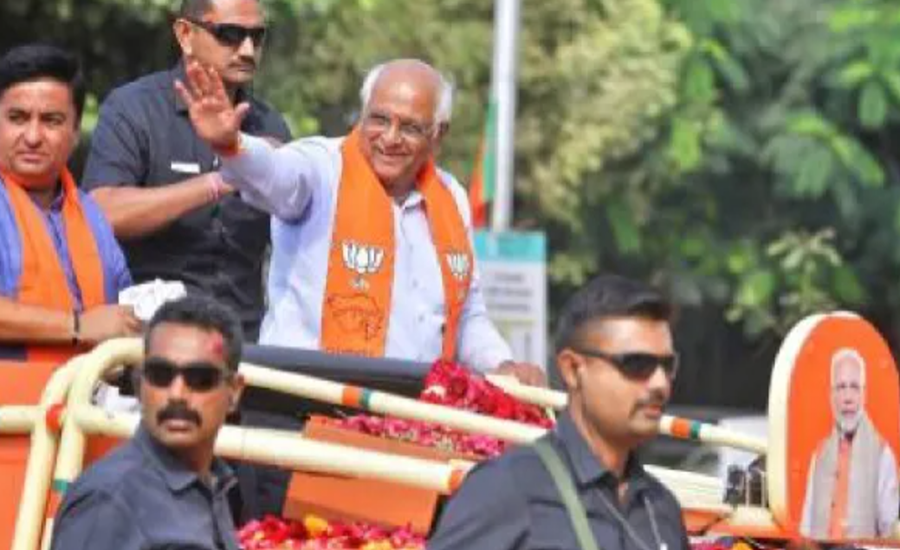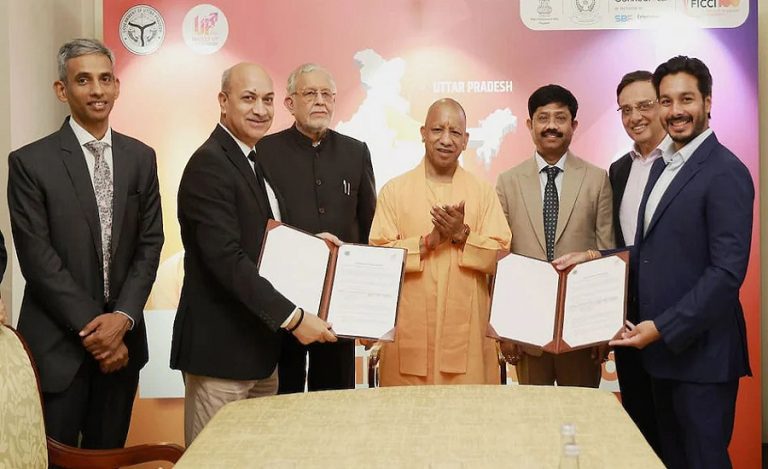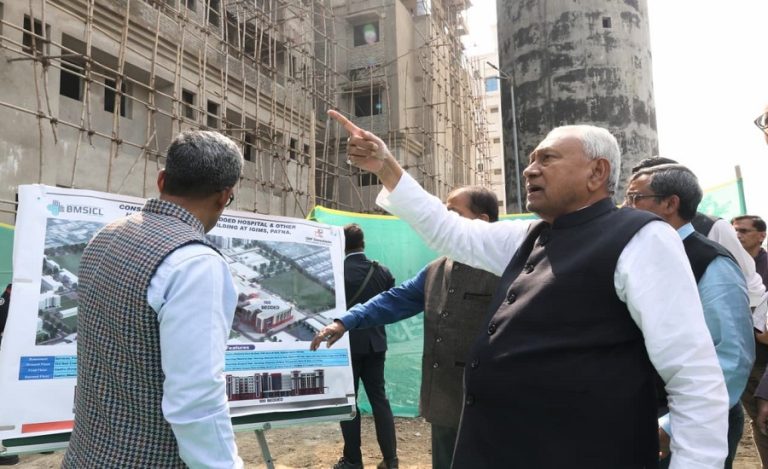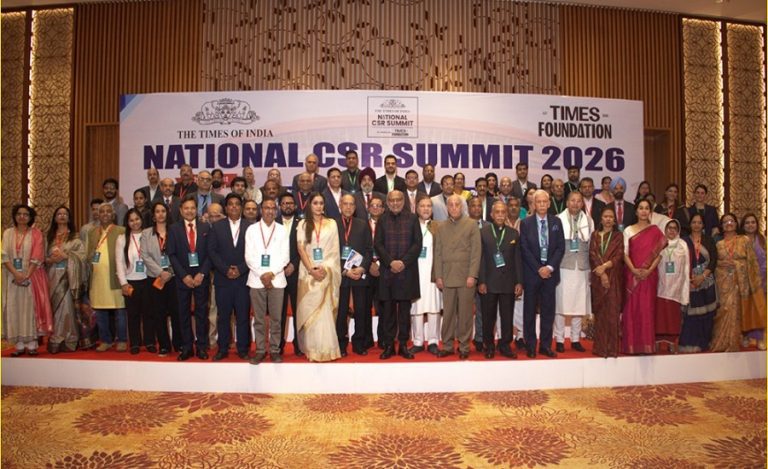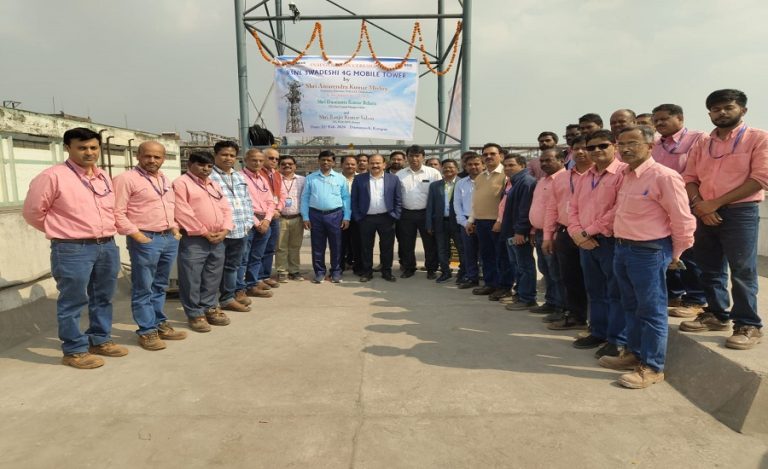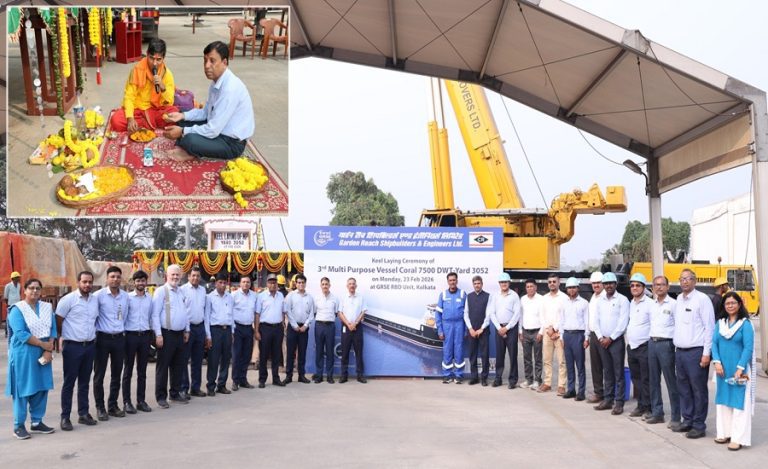On September 13, 2025, Gujarat Chief Minister Mr. Bhupendra Patel completed four impactful years in office, reinforcing his commitment to inclusive development, administrative reform, and global engagement. His tenure has maintained the legacy of the “Gujarat Model” initiated by Prime Minister Mr. Narendra Modi while infusing it with bold policy measures and people-centric governance.
From empowering women and youth to transforming urban infrastructure and attracting global investments, Mr. Patel’s leadership reflects a forward-looking vision grounded in grassroots implementation.
Political Journey: From Urban Planner to Chief Minister
Mr. Patel’s political ascent is rooted in local governance and urban planning. Born in Ahmedabad in 1962 and trained in civil engineering, he served as the chairman of the Ahmedabad Urban Development Authority before entering legislative politics in 2017. He became the 17th Chief Minister of Gujarat in 2021 and secured a decisive mandate in the 2022 assembly elections.
Governance Reforms: Digital Tools and Zero-Tolerance on Corruption
The Patel administration has focused on governance reforms through initiatives like the Gujarat Administrative Reforms Commission and GRIT (Gujarat Reform in IT). Declaring 2025 as “Urban Development Year,” the government emphasized smart growth of cities and tech-enabled administration.
Highlights include:
- AI-based systems to identify school dropouts
- Statewide launch of helpline number 112 for integrated emergency services
- Action against nearly 50 officials for corruption
- Demolition of illegal constructions across major cities including Ahmedabad, Dwarka, and Somnath, reclaiming millions of square meters from encroachment
These actions send a clear message of zero tolerance for inefficiency and corruption.
Economic Growth: Investment, Employment, and Innovation
Under Mr. Patel’s leadership, Gujarat has emerged as a key hub for industrial and technological growth. The state secured major investments in semiconductor manufacturing, while GIFT City evolved into a global fintech destination, hosting an AI Centre of Excellence.
The Vibrant Gujarat Global Summit 2024 saw participation from 140 countries, reinforcing Gujarat’s image as an investment-friendly state.
Employment and entrepreneurship also received a boost:
- Over 6,500 job fairs held
- More than five lakh youths gained employment
- G-Liv Scheme empowered women’s self-help groups
- Nan Gaurav Niti 2024 provided new momentum to women-led enterprises
Welfare Schemes: Direct Benefits to the People
Public welfare has remained a cornerstone of Mr. Patel’s tenure, ensuring direct benefit transfers and improved social safety nets.
Key schemes include:
- 15 lakh+ houses built for low-income families
- Mukhyamantri Poshak Alpahar Yojana for nutritious meals in schools
- Namo Shree Yojana offering financial support to mothers
- Expansion of PMJAY MA health cover from Rs. 25 lakh to Rs. 10 lakh per family
- Namo Lakshmi and Namo Vatsal Yojanas provided direct aid to students
These programs have not only addressed basic needs but also aimed to break cycles of poverty.
Promoting Culture, Sports, and Environment
The state government has invested heavily in cultural and sporting infrastructure:
- Sports complexes developed in 22 districts
- Gujarat hosted major events like the Commonwealth Weightlifting Championship and National Games
- Official bid submitted to host the 2036 Olympic Games
Environmental consciousness was promoted through:
- The “Ek Ped Maa Ke Naam” campaign
- Gujarat ranked top in rooftop solar installations
- Initiatives on green hydrogen and renewable energy policies
These efforts illustrate a balance between economic development and ecological responsibility.
Challenges and the Road Ahead
While Gujarat has seen marked development, challenges such as rural unemployment and farmers’ concerns remain areas of focus. Mr. Patel has acknowledged these and pledged to address them through continuous reforms and policy-driven solutions.
As Gujarat moves toward the 2027 elections, the Chief Minister’s challenge will be to deepen grassroots implementation of schemes and maintain public trust through transparent, accountable governance.

